Published Oct 16, 2019
Star Trek Saved My Life, Literally
The fandom friendships forged through 'Trek' rescued me when addiction left me ready to give it all up.
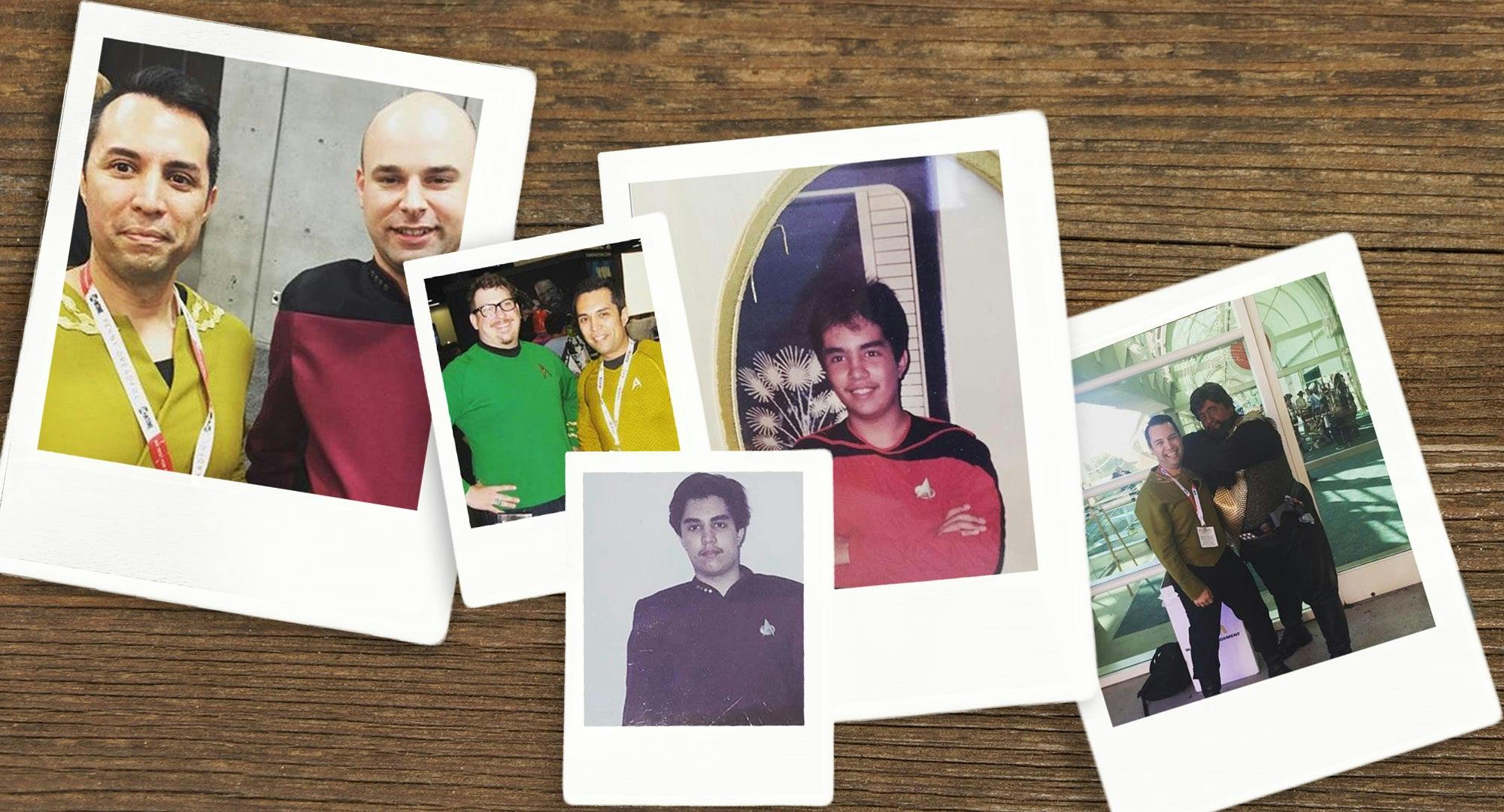
StarTrek.com
Content Warning: This article discusses drug use and suicide.
I shouldn’t be here. I shouldn’t be writing this article.
I don’t mean I should be somewhere else. Some other space, some other time.
I mean, to be completely frank, that I should be dead.
I didn’t try to go out in a blaze of glory, saving the galaxy. I tried to overdose— on purpose.
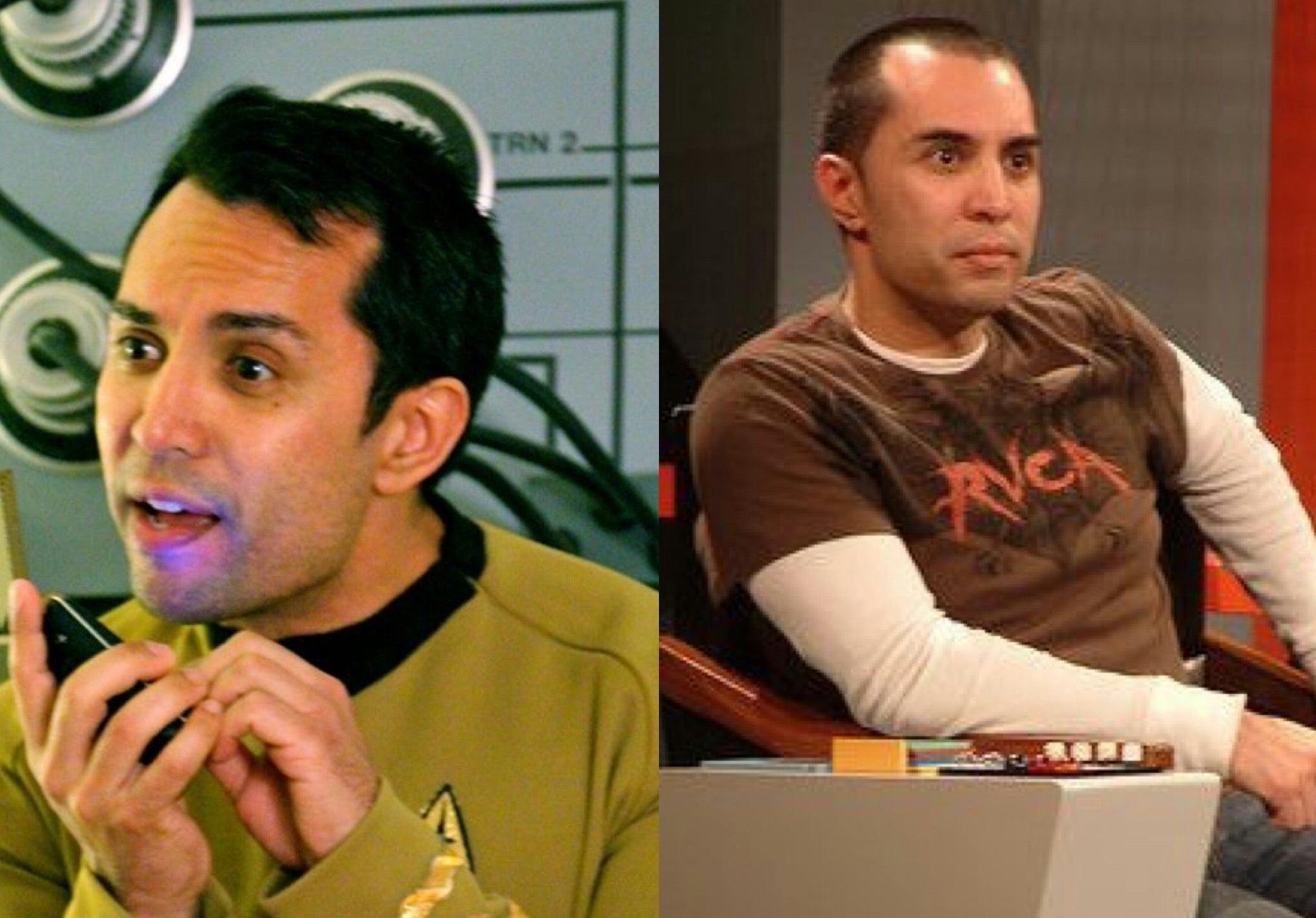
Ryan T. Riddle
I’d reached a point in my life where I didn’t want to go on anymore. I’d been through two back-to-back toxic relationships. I’d nearly lost my mom. I’d lost one job and become painfully dissatisfied with another, similar one. With my depression festering untreated, I started self-medicating with crystal meth. I went from smoking to shooting meth in about a year.
I didn’t know how to stop. I tried. I really did. On paper, I had a great job, in a profession that’s in high demand. I lived in San Francisco, the future home of Starfleet Command. But I was shattered inside.
But friends, some of whom I met through a mutual love of Star Trek, saved me. If it weren’t for Star Trek, I’d be dead today and, unlike Spock, I’d stay that way.
Trekkie… Trekker… Let’s Call the Whole Thing Off
My mother likes to tell everyone that I’ve been watching Star Trek since I was two years old. According to her, I’d rush into the living room upon hearing the first cords of Alexander Courage’s theme play on TV, demanding that they not change the channel.
Funny enough, my mom watched The Original Series back in the Philippines before she met my father and had me. She often tells me about her crush on William Shatner. “If only I knew I’d have a Trekkie son,” she jokes.
Whenever my Navy officer father came back from sea duty, he’d take me to Star Trek conventions. I’d cosplay as a Starfleet captain, of course, Something I still do to this day.
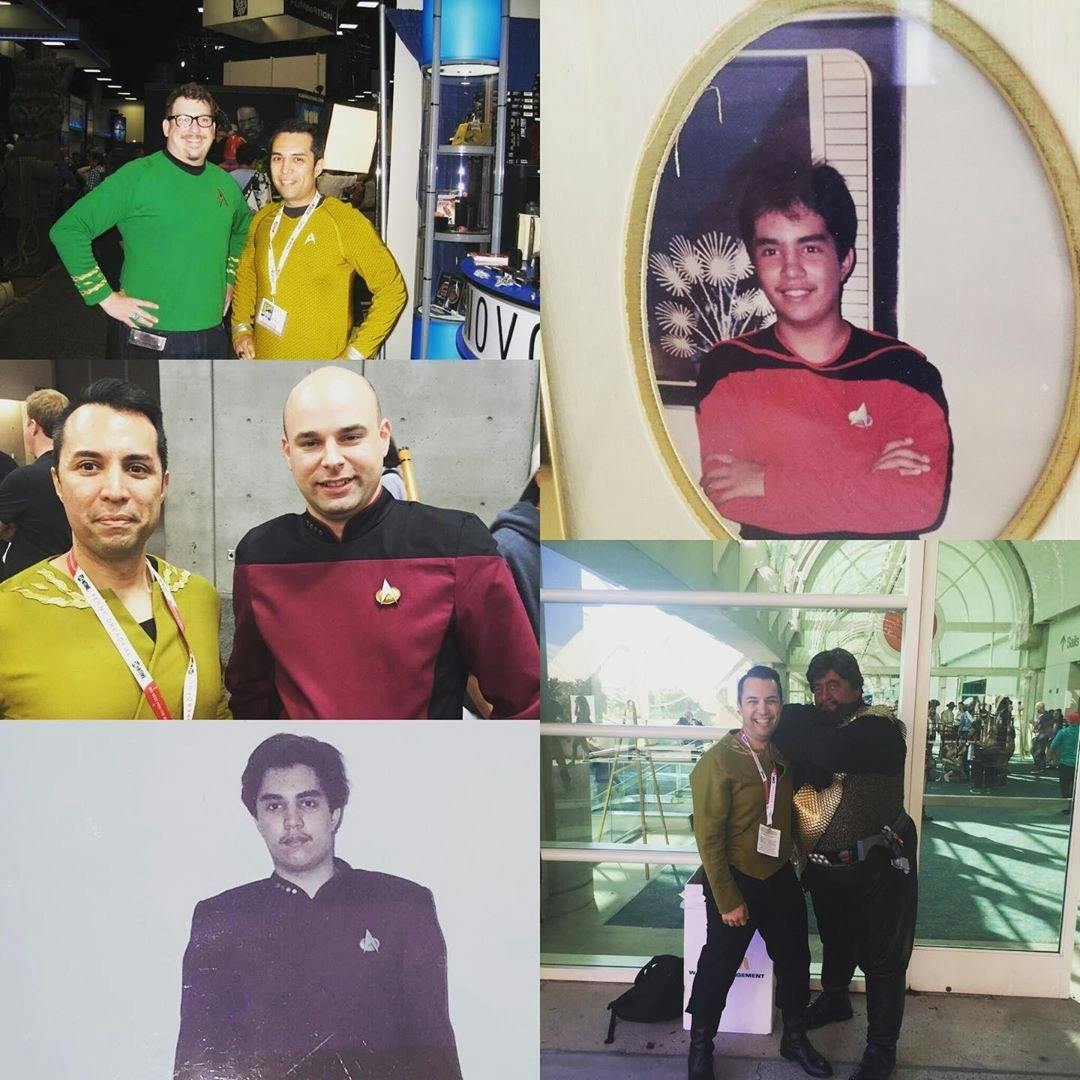
Ryan T. Riddle
Over the years, I’ve made many friends because of Star Trek. The two most important friendships in my adulthood have been through the TrekBBS, a fan internet bulletin board, which I’ve been a member of for 16 years. I met writer/filmmaker Maurice Molyneaux when I moved to the San Francisco Bay Area in 2010. We’d interacted on the BBS, and finally met face-to-face when I covered his 48 Hour Film Festival short film.
That soon led to meeting my friend Mark. While I lived in San Francisco, the three of us were practically inseparable. We supported each other and cared for each other. They were the Bones (Mark) and Spock (Maurice) to my Jim Kirk. They were my family.
They still are and will always be.
The Enemy Within
I’m not interested in debating who’s the better captain. They all have something to bring to the briefing table. But Kirk resonates with me the most because he’s painfully aware of his flaws and is determined to overcome them. He’s even forced to literally embrace and accept his own flaws in the form of his darker, negative transporter duplicate (“The Enemy Within,” Season One).
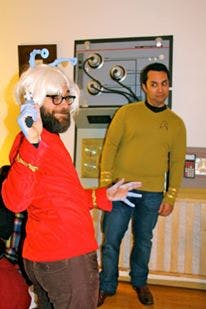
Maurice Molyneaux
All my life, I’ve wrestled with insecurities and feelings of inadequacy. My parents were wonderful, but an ex in-law terrorized me as a child. I clung to that trauma for decades, unaware of how much it damaged me. How much it stymied my ability to accept myself, my appearance, and even my own queer sexuality.
I measured myself in failures rather than success. Unlike my hero, Kirk, I never hugged it out with my flaws. Instead, I was locked in a constant battle with them. That struggle, along with the conflux of life events led me down a much darker path than any Starfleet adventure.
“No one wants to become dependent. That happens later,” Tasha Yar tells an inquisitive Data and young Wesley Crusher in “Symbiosis.” The android and the acting ensign can’t understand the stranglehold of addiction. But, as Tasha explains, it’s a trap one falls into when they seek to escape their lives and soon the drug owns you completely.
As maudlin as that scene is, it’s absolutely right about the stranglehold of addiction. One in nine Americans use drugs, or 30.9 million Americans, according to a 2017 Substance Abuse and Mental Health Services (SAMHS) survey, and 19.7 million of those surveyed reported having a substance abuse problem. I fell into that trap to escape my own depression after losing a job and facing the possibility of losing my mom to illness. My meth use started as an every-now-and-then thing. But, once you combine that with a toxic relationship and untreated mental health issues, you have the perfect recipe for chemical dependence.
A Measure of A Person
2017 and 2018 were the years of hell. Getting laid off and being in an emotionally charged romance exacerbated my feelings of inadequacy. It was easy to tell myself, and subsequently believe that I wasn’t good enough for any employer or any partner. Friends checked on me, even encouraged me to seek help and antidepressants for my declining mental and physical health due to the drugs, which made me feel good until they didn’t.
So I found myself in a San Francisco ER, spun and twisted after injecting myself with what I had hoped was a lethal dose. Fearing being kept longer on a psychiatric hold, I didn’t tell the doctors and nurses my botched overdose was a suicide attempt. I wanted the chance to leave so that I could finish the job.
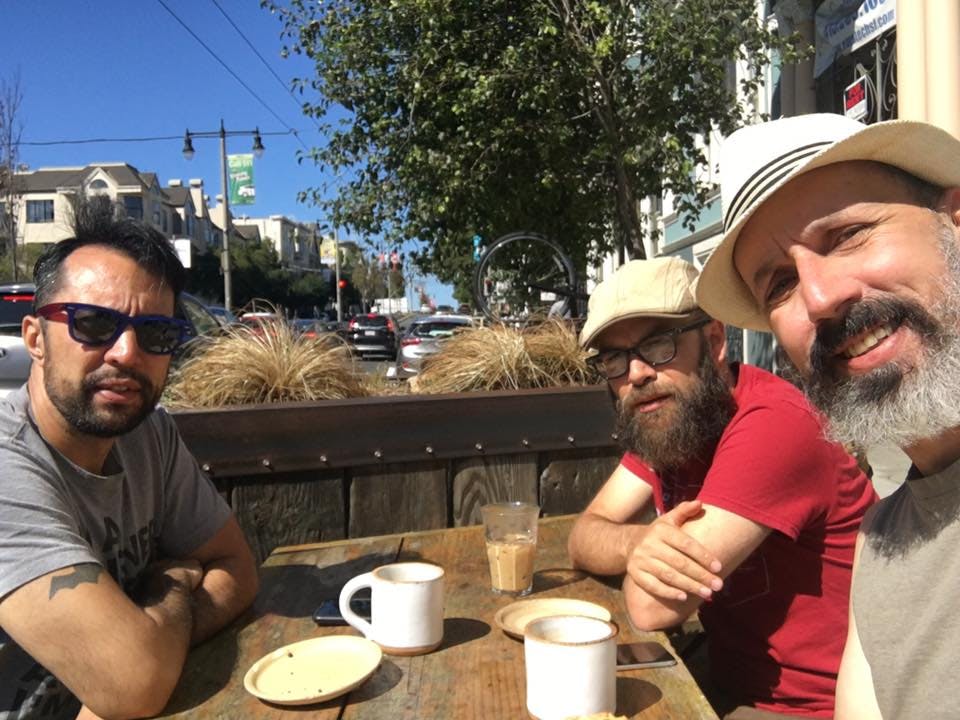
Ryan T. Riddle
The morning I left the ER, my friends conspired to save me. My close friend, independent of my Trekdom, Yeray found me wandering the streets, scooped me up, and took care of me that day. He urged me to leave San Francisco and ensured I could get a flight to San Diego, my hometown. He traded with Maurice, who watched over me for the next two days, ensuring I didn’t escape to complete what I had failed to do.
Maurice made sure I got my things for my trip, including the Starfleet Discovery badge I often carried with me as a reminder of the type of person I aspire to be. We lunched with Mark so I could see him before I left. Other friends also came to see me off that night. The next day, I was on a plane homeward bound to my salvation.
I was sad to leave San Francisco. I’d worked all my life to live there. The liberal, progressive city was a dream home for a queer Trekkie. But I got the treatment I needed at Stepping Stone, a rehab which specifically caters to the LGBTQ community.
The Star Trek fandom, especially on Twitter, are a very important part of my recovery. My friends and family continue to support me as I recover from my addiction; and whether it’s virtually or face-to-face, I know that they have my back. And I certainly have theirs.
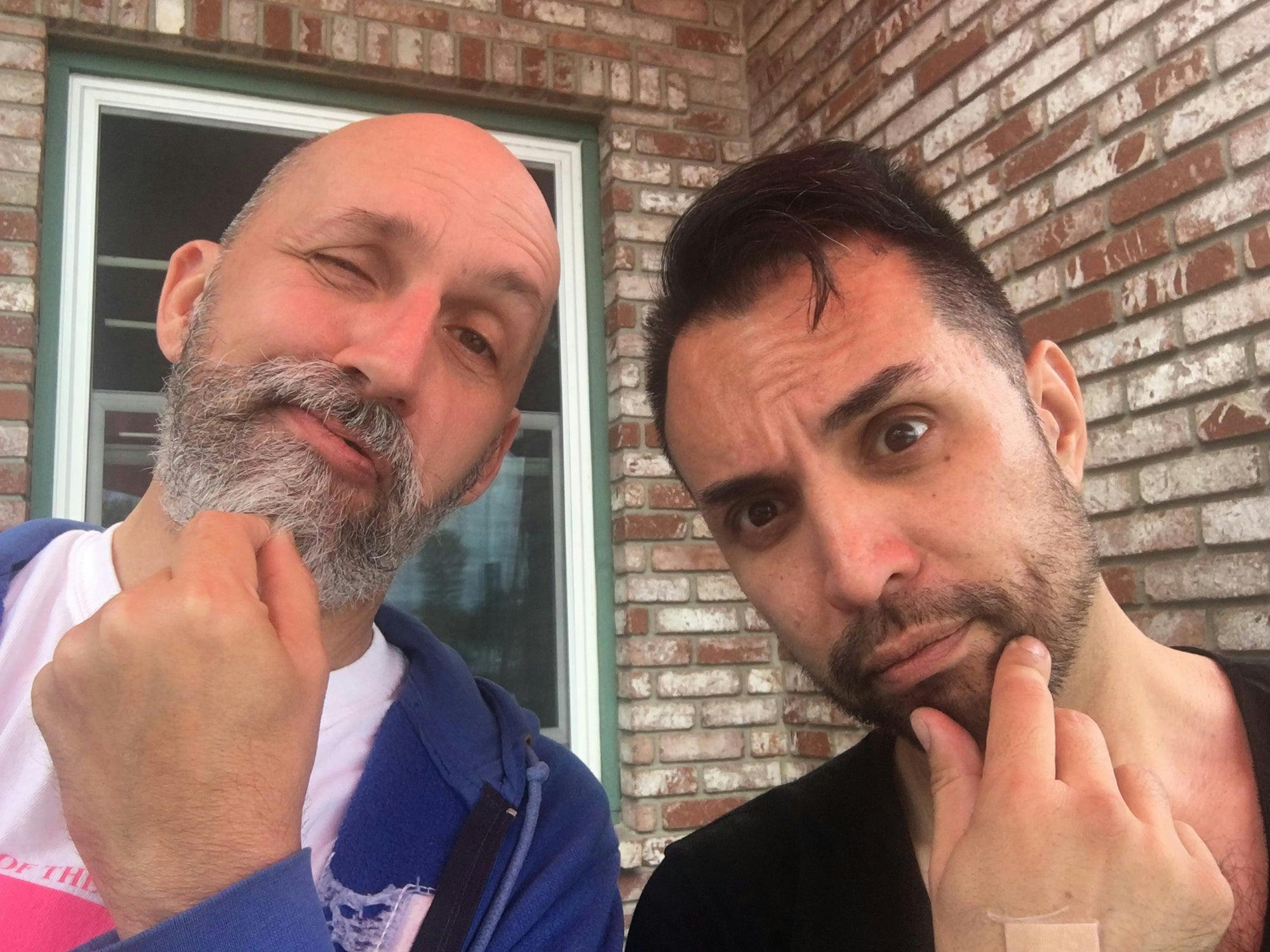
Ryan T. Riddle
It hasn’t always been easy. I’ve made mistakes and I’ll continue to do so. We all do. After all, as Captain Kirk once pointed out, we’re all human. Today, I’m more at ease with those mistakes and flaws. After a year of therapy, I’ve learned to embrace my enemy within and love it as part of who I am.
But the measure of a person isn’t in how they fail or stumble. It’s in how they get up and keep moving forward. Let’s keep moving forward— together, because none of us can do it alone.
We need one another, and I need all of you, my Star Trek Family.
Ryan Thomas Riddle (he/his) is a writer and award-winning journalist, an occasional Starship Commander, and proud nerd queer. You can follow his adventures in space and time on Twitter @ryantriddle.
If you or anyone you know has an addiction problem or is contemplating suicide, here are some resources to get help:
The National HelpLine is a free, confidential, 24/7, 365-day-a-year treatment referral and information service (in English and Spanish) for individuals and families facing mental and/or substance use disorders.The National Suicide Prevention Lifeline provides 24/7, free and confidential support for people in distress, prevention and crisis resources for you or your loved ones, and best practices for professionals.
The National Alliance on Mental Illness is a free education program for those who provide care to children experiencing mental health symptoms.

